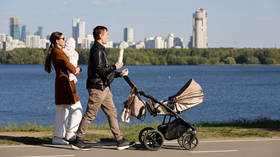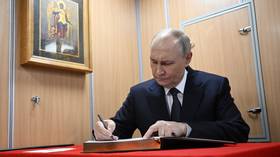Most Russians oppose ‘childlessness tax’ – poll

Nearly 70% of Russians are opposed to the idea of reviving a Soviet-era policy of taxing people who do not have children, a new survey by the state-owned Russian Public Opinion Research Center (VCIOM) has shown.
The findings, which sampled the opinions of 1,600 randomly selected Russian adults, were published on Wednesday.
The survey showed that 89% of zoomers have a negative attitude toward a tax on childlessness. This, however, “does not at all indicate their weak commitment to family values or refusal to have children,” the center wrote. The response suggests however, that young people react badly “to attempts to interfere with their personal life,” it said.
Along with young people aged 18-23, the initiative was opposed by residents of both Moscow and St. Petersburg (77%), as well as the most vulnerable groups, for whom such a tax could turn out to be a significant burden.
The better off financially the respondents were, the more likely they were to believe in the positive impact of such a tax, according to the survey.
Supporters of the initiative said that the raised funds could be used to support families with children, orphans, and orphanages. Opponents, however, questioned the morality and ethics of the proposed tax, calling it an instrument of discrimination that could worsen social problems instead of solving the demographic problem.
The so-called tax on childlessness was in effect in the USSR from 1941 to 1992. It was introduced to stimulate population growth after the country suffered huge losses in World War II. The tax applied to childless men from the ages of 20 to 50 and childless women from 20 to 45. The tax rate was around 6%, depending on income.
The idea of reviving the tax was proposed last month by Lt. Gen. Andrey Gurulev, a member of the State Duma Defense Committee, who argued that the money raised could be used to modernize orphanages.
The proposal, however, has sparked heated debate among lawmakers. MP Evgeny Popov said last month that the country should instead introduce a “tax on stupidity.”
Meanwhile, State Duma Chair Vyacheslav Volodin urged lawmakers to “avoid ill-considered initiatives and extremes,” so as not to “frighten people.” He stressed that no one would violate the right of women to choose whether or not to have children. Kremlin spokesman Dmitry Peskov indicated such a tax is unlikely to solve Russia’s demographic problems, but said not enough is known about the proposal to form an opinion on it.














